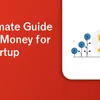What should early-stage startups focus on to attract investors? This is a common question among founders, and to be honest, there are a lot of different paths to attract investors. There are a few key aspects we look at while evaluating a prospective company.
For the purpose of this note, I will lay emphasis on two key aspects of our investment process. First, is the initial outreach, where founders make the first contact with the VCs. Second, is the due diligence process which encompasses everything from the first pitch to the investment decision.
Initial outreach
This step is the first interaction between founders and investors; it usually involves the exchange of the pitch deck and a brief introduction by the founders. This first point of contact generally leads to an introductory call or a pass. To ensure conversion from initial outreach to an introductory call, founders should focus on who, how and when?
Who should founders reach out to?
Most investors invest based on a predetermined investment thesis. This thesis dictates the sector, stage, ownership preference and cheque sizes of the investor. A lot of founders, in a bid to raise money, spread themselves too thin and reach out to investors, who will not be interested in their startup.
Reaching out to biotech investors for a social commerce platform is inefficient, to say the least. Founders have to do their homework before they reach out to investors, shortlist a few who's mission and investment thesis seem most amenable to their business and approach these investors first. The founder of an online poker website secured his first investment after crawling Twitter for Indian VCs interested in poker. Not only did this showcase his due diligence, but also highlighted his hustle, both traits investors love in founders.
How should the founders reach out?
Once the founder has figured out the 'who', they need to figure out the 'how'. Venture capitalists are inundated with pitch decks. Investors sift through hundreds of pitch decks a month, which are received through multiple modes of communication, including inbounds from our websites, cold LinkedIn messages and even outreach we do ourselves.
Given the volume of pitch decks, we can't spend a lot of time on each deck. A quick shortcut to getting noticed is to ask someone in your network for a warm introduction. The warm introduction immediately puts you in our priority queue and establishes a basic level of trust between the founders and investors. If you don't have anyone to refer you, make sure to include a description of your company with the pitch deck.
When should founders approach investors?
Admittedly, startups are always looking for investment. Still, you want to reach out to investors when you have something to show for their investment. For deep tech businesses, it could be the founder's experiences and a business plan. For SaaS companies, it could be an initial MVP. The reality is that the more you have to show, the more attractive you will be to investors.
The good news is that even if you reach out to an investor too early, it doesn't prevent them from investing in your startup later. Once you have their email, use it as a resource to build a relationship and keep investor interest piqued. Include them on your investor updates and monthly progress emails. If you show them progress, they are bound to reach out themselves, sooner rather than later.
Due diligence
Investors try to hop on an introductory call with most companies that send them a pitch deck, but the three questions we assess before we set up the call are:
- Who are the founders?
- Are we excited about this market?
- Is the product interesting?
Unsurprisingly, every subsequent meeting (video call these days) is set up to increase our conviction on these primary questions.
Who are the founders?
Finding smart founders isn't the problem; most founders are enterprising and bring a unique flavour to the problem they are solving. Investors generally focus very heavily on two aspects. The founder-market fit and the founder-investor fit. What is founder-market fit?
Investors are excited about hard problems. These problems are rarely identified or solved by industry outsiders. That's why we look for founders who have gotten their hands dirty in industry and understood their potential customers. This experience helps them shift from zero to one instantly.
The founder-investor fit is a different metric altogether. If we invest in a company, it's likely to be a partnership that lasts the better part of a decade. The length of this relationship makes us want to invest in founders that we want to work with. I do like to emphasize that this is a two-way street and the same should hold for founders, where you should also choose investors you trust and are comfortable with.
Are we excited about the market?
It's no secret that the 'market' is the single most cited reason for investors to not go ahead with a deal. Unfortunately, not all markets are VC investable. Investors have a strong bias towards markets with favourable size, growth, timing and competition. While founders may not be able to change a market, they can focus on problems in the market that fit the above paradigm.
Most importantly, founders in emerging markets should spend time educating investors on the market. Your goal is to ensure that the investors don't pass on your deal because they don't understand the market. Finally, simplify the story for investors; complexity doesn't engage anyone. Use relatable ways to explain the market and its pain points.
The founder of a spacetech company described his product as the "Uber for small satellites." It was simple, relatable and immediately conveyed their market potential.
Is the product interesting?
The final question investors ask themselves is if the product is good enough to solve the problem described by the founders? Interesting products are those that can or at least claim to solve a problem 10x faster/cheaper or better.
The classic example is Stripe which revolutionised the payments space and reduced payment integrations to three lines of code. We don't expect early-stage founders to have this product built out from day one; we don't even expect the initial product vision to be the same as the final delivered product.
Still, a clear product vision gives us the confidence that the founder has a deep understanding of the problem they are trying to solve.
It can be hard making connections in the VC community. It's even harder finding the right investors to partner with. Hopefully, with these set of guidelines founders can focus on cracking the challenging problems that face humanity, rather than be bogged down by a cluttered capital-raising process.
(Disclaimer: The views and opinions expressed in this article are those of the author and do not necessarily reflect the views of YourStory.)
Link : https://yourstory.com/2020/11/early-stage-startups-focus-attract-investors
Author :- Arjun Rao ( )
December 10, 2020 at 11:23AM
YourStory



